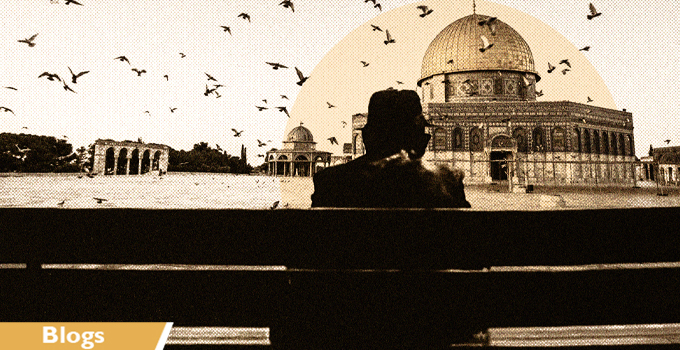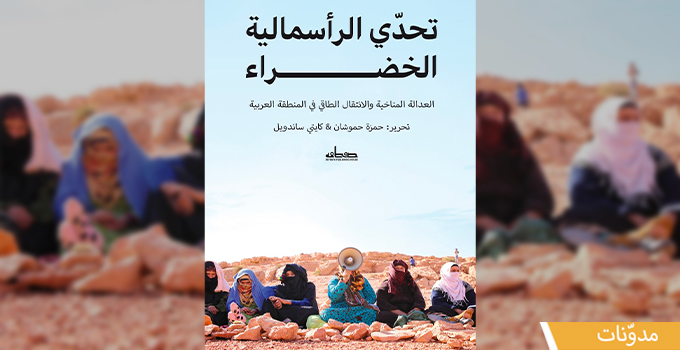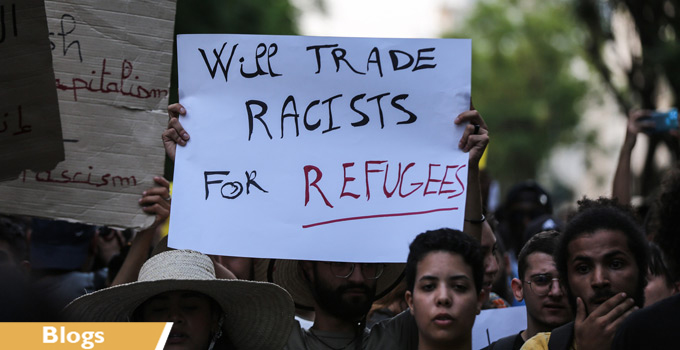
The proposed law, if passed, would embolden security forces in their use of excessive force and send an alarming message to Tunisians, especially members of marginalized groups, already vulnerable to police misconduct, that they will not be protected from police violence.
For LGBT people, who are often excluded from government protection, the passage of this law is terrifying. Here’s why:
On August 5, Ahmed El-Tounsi, a transgender Tunisian man and founder of the trans rights organization OutCasts, thought he would bleed to death on the street.
El-Tounsi and other trans activists were walking near the French Embassy in Tunis when police officers guarding the embassy approached them and asked for their IDs. When the officers saw the mismatch between their IDs and their gender expression, and after a verbal altercation, the police physically and verbally assaulted them, the activists said.
Bloodied and humiliated, they tried to run, but additional police officers arrived and beat the activists, while inciting by standers to join in –cursing, hitting, and dragging the activists by their clothes on the street, they told me.
“Kill them, they are sodomites,” the officers told by standers, El-Tounsi said.
“They [private individuals] followed us into alley ways and beat us unconscious,” he said. “They snatched our phones to delete evidence of the assault, and said, ‘We will slaughter you,’ It felt like our entire country beat us that day.”
When he sought medical care at Habib Thameur Hospital, El-Tounsi was denied treatment based on his gender expression. “The doctor said, “You’re a special case, I can’t treat you here. Go somewhere else,”” El-Tounsi said.
“My chest was swollen from the beatings, I couldn’t breathe, I was bleeding profusely, I could barely stay conscious,” he said. When he went to Charles Nicole Hospital, administrative staff refused him entry after seeing his ID, and referred him to a women’s hospital, despite his self-identification as a man.
Activists took El-Tounsi to Wassila Bourguiba Hospital, which specializes in women’s health.“I’m bleeding, I’m going to die, please treat me,” El-Tounsi pleaded, but the doctor responded, “You look like a man, this is a women’s hospital.”
After he waited for hours and negotiated with the doctor, she checked El-Tounsi’s injuries while seven nurses stood around him, interrogating him about his gender identity, and addressing him with female pronouns. “They mocked me. They didn’t treat my injuries. They didn’t even give me a medical report.”
Activists turned to the courts and filed a complaint, seeking to hold police and embassy officers accountable. Several lawyers involved in the case told me that the head of a first instance court in Tunis dismissed the request to review camera footage near the embassy, which lawyers said would show the officers’ role in the assaults. The lawyers appealed in late October and await a decision.
Saif Ayadi, a social worker at Damj, a Tunis-based LGBT rights group, was there during the attacks on trans activists in August, and was among those arbitrarily arrested and beaten at the protest in October. He spoke to me about the increasing police violence against LGBT people in Tunisia, and the insurmountable dangers that would accompany the passage of the draft impunity law.
Ayadi said that in 2020, Damj provided legal assistance to LGBT people at police stations in 75 cases and responded to 98 requests for legal consultations. “These figures are five times higher than those we recorded in 2019, indicating an alarming increase in persecutions of LGBT people during the Covid-19 pandemic,” he told me.
Ayadi said that between March and September, his organization recorded 21 cases of violence against trans people in public, 10 torture cases, and 2 cases of bullying by security officers against trans people in detention facilities. There were also 12 prison sentences against trans people and gay men under articles 230, 226, and 125 of Tunisia’s penal code, which criminalize “sodomy,” “indecent behavior in public,” and “insulting a public officer,” respectively.
Tunisian law does not provide a clear or accessible path to legal gender recognition for transgender people, who face systemic discrimination compounded by the incongruity between their official documents and gender expression.
Amal Ayari, a prominent advocate for women’s and LGBT rights in Tunisia, told me, “Tunisia is considered a country where rights and freedoms are protected, but such flagrant violations of citizens’ rights show that this discourse is just slogans, and is an attempt to whitewash Tunisia’s international image.”
Instead of granting more power to the police, the Tunisian government should decriminalize same-sex conduct and protect LGBT people from discrimination and police violence. The proposed bill, Number 25/2015, a shameful step backward, should not pass.





iThere are no comments
Add yours